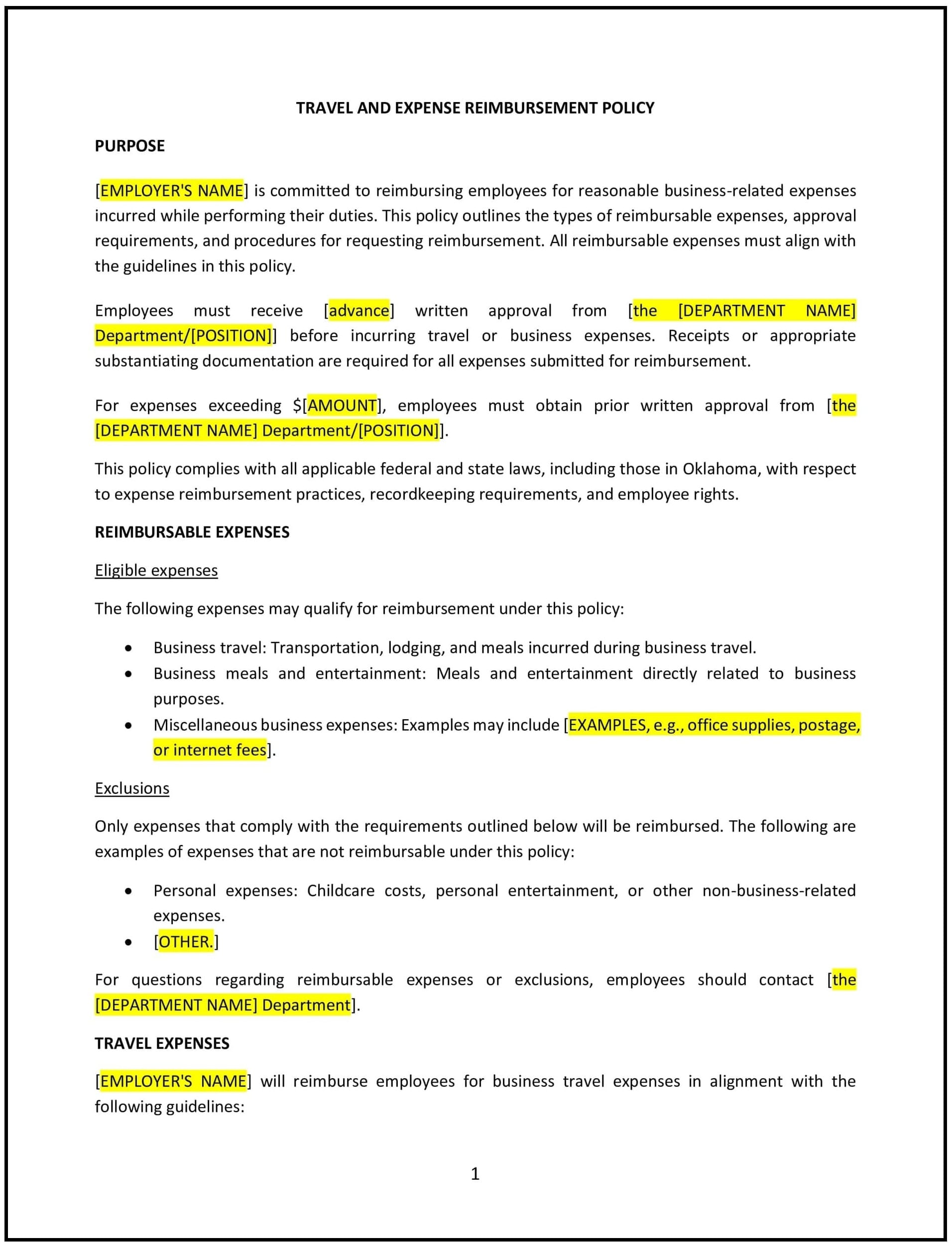Travel and expense reimbursement policy (Oklahoma): Free template
Got contracts to review? While you're here for policies, let Cobrief make contract review effortless—start your free review now.

Customize this template for free
Travel and expense reimbursement policy (Oklahoma)
This travel and expense reimbursement policy is designed to help Oklahoma businesses establish guidelines for managing employee travel and related expenses. It outlines procedures for submitting expense reports, eligible expenses, and reimbursement timelines.
By adopting this policy, businesses can ensure transparency, control costs, and provide fair reimbursement for employees.
How to use this travel and expense reimbursement policy (Oklahoma)
- Define eligible expenses: Clearly explain what expenses are reimbursable, such as airfare, lodging, meals, and transportation.
- Establish submission procedures: Provide steps for employees to submit expense reports, including required documentation and approval processes.
- Set spending limits: Specify limits for certain expenses, such as daily meal allowances or hotel rates.
- Address reimbursement timelines: Explain how and when employees will be reimbursed, such as through payroll or direct deposit.
- Train employees: Educate staff on the policy and their responsibilities when incurring and reporting expenses.
- Review and update: Assess the policy annually to ensure it aligns with evolving business needs and financial practices.
Benefits of using this travel and expense reimbursement policy (Oklahoma)
This policy offers several advantages for Oklahoma businesses:
- Ensures transparency: Provides clear guidelines for employees on what expenses are reimbursable and how to submit claims.
- Controls costs: Sets spending limits and approval processes to manage travel and expense budgets effectively.
- Promotes fairness: Ensures consistent and fair reimbursement for all employees.
- Reduces disputes: Clarifies procedures and expectations, minimizing misunderstandings or conflicts.
- Builds trust: Demonstrates a commitment to fair and transparent financial practices.
Tips for using this travel and expense reimbursement policy (Oklahoma)
- Communicate clearly: Ensure all employees understand the policy and their responsibilities when incurring and reporting expenses.
- Provide training: Educate employees on submitting expense reports and adhering to spending limits.
- Monitor compliance: Regularly review expense reports to ensure adherence to the policy and identify potential issues.
- Encourage documentation: Foster a culture where employees consistently provide receipts and documentation for expenses.
- Update regularly: Review the policy annually to ensure it remains effective and aligned with business needs.